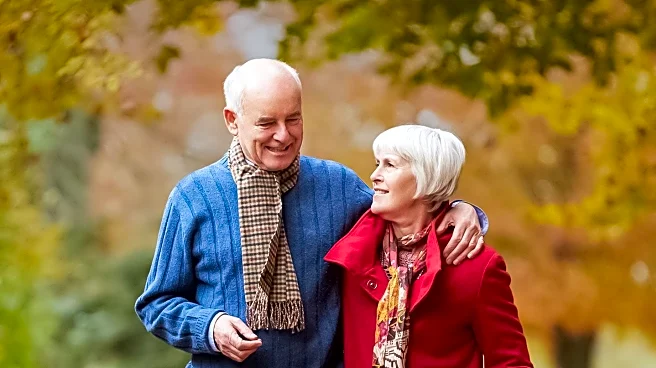What is the story about?
What's Happening?
Health experts are emphasizing the importance of lifestyle changes for older adults to improve their overall well-being. Key recommendations include adopting a diet rich in fresh fruits, vegetables, whole grains, lean proteins, and healthy fats, as well as engaging in regular physical activity tailored to individual capabilities. Nutritionists highlight the significance of fiber, protein, and vitamin D in maintaining digestive health, muscle mass, and bone strength. Cardiologists stress the benefits of exercise, such as walking and chair yoga, to enhance cardiovascular health and reduce anxiety. Additionally, hydration is crucial, with a suggested intake of at least 48 ounces of water daily.
Why It's Important?
These lifestyle changes are vital for older adults as they address common health challenges associated with aging, such as sarcopenia, cardiovascular issues, and vitamin deficiencies. By focusing on a balanced diet and regular exercise, seniors can improve their physical health, reduce the risk of chronic diseases, and enhance their mental well-being. This approach not only promotes longevity but also improves the quality of life, allowing older adults to maintain independence and engage actively in their communities.
What's Next?
As awareness of these recommendations grows, healthcare providers may increasingly incorporate personalized lifestyle advice into routine care for older adults. This could lead to more widespread adoption of healthy habits among seniors, potentially reducing healthcare costs associated with age-related conditions. Additionally, community programs and resources may emerge to support older adults in implementing these changes, fostering a culture of health and wellness.
Beyond the Headlines
The emphasis on lifestyle changes for older adults also highlights broader societal shifts towards preventive healthcare and holistic well-being. This approach challenges traditional medical models that focus primarily on treating illness, advocating instead for proactive measures that empower individuals to take charge of their health. As these ideas gain traction, they may influence public health policies and inspire innovations in senior care.















